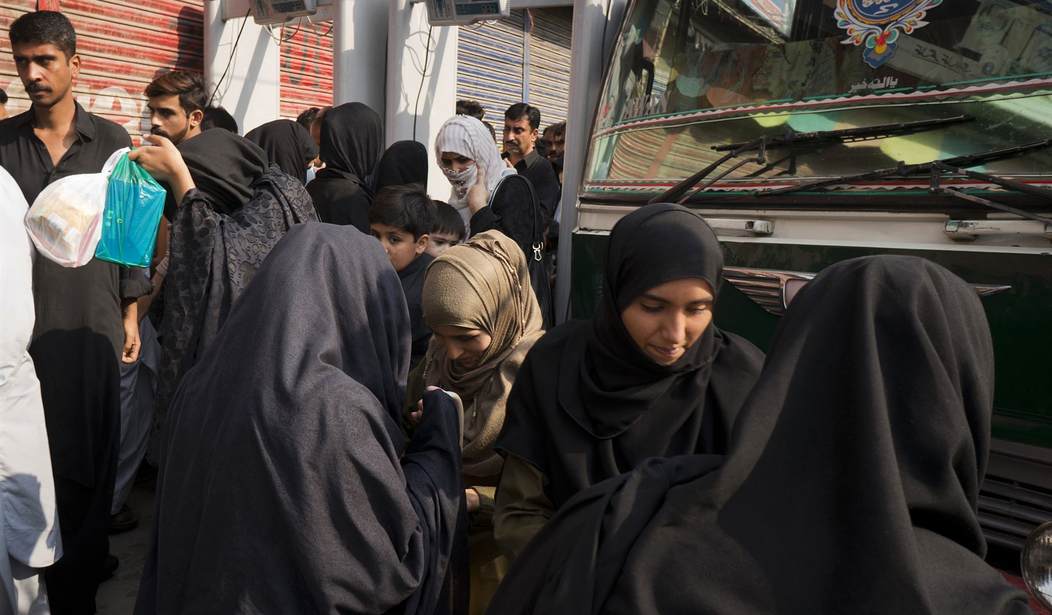A large part of the world is focused on the conflicts unfolding between Hamas and Israel as well as Ukraine and Russia, with international observers closely scrutinizing these two wars.
However, the plight of civilians who have been enduring extreme suffering for decades, such as in the remote areas of Khyber Pakhtunkhwa and Balochistan in Pakistan, largely goes unnoticed by the same level of sharp scrutiny from Western eyes.
In Khyber Pakhtunkhwa, documented attacks by Pakistani forces in May and April demonstrate the scope of violence against civilian populations. On May 19, for instance, a drone strike attacked North Waziristan, murdering four young children.
Six people, three children among them, were injured when mortar shells fired by Pakistani security forces hit houses in Tirah from May 5 to May 8. Other events included quadcopter drone attacks in Shawwal and a landmine blast in Tehsil MadaKhel, Waziristan. The latter killed one young man.
The May 11 quadcopter drone attack in JaniKhel, Bannu, injured eleven women and five children. Operations in Betni Area, Tank, on May 9 resulted in the deaths of three young men and one injured. A separate mortar shelling incident in Tirah Valley on May 9 murdered a woman, completing a week that left dozens of civilians dead or wounded.
Meanwhile, residents of Tirah Valley staged a protest demonstration against the murder of a 12-year-old girl in a mortar fire in April.
All these incidents and more make a significant point that the Western world has remained oblivious to the use of modern weaponry, including armed drones, by the Pakistani state against its own citizens.
These Pakistani drones are largely procured from Turkey and China. They appear to be rigorously tested by targeting the country's own civilian population in these areas. This causes not only immense loss of lives and property but also instills a perpetual sense of fear in the minds of residents, including children.
Pakistan's use of drone technology against its own population began during Operation Zarb-e-Azb, when the military first acknowledged using armed Burraq UAVs (unmanned aerial vehicles) in 2015. While officials described the move as counterterrorism operations, civilian casualties from these strikes have created resentment among affected communities.
A March 2025 drone attack in Mardan that massacred eleven people, including women and children, resulted in the government’s acknowledgment of "collateral damage" only after local protests demanded compensation for the victims' families.
A recent drone strike in northwest Pakistan's Mir Ali murdered four children and wounded five others, prompting thousands of residents to stage protests by placing the children's bodies on the main roads as a symbol of their demand for justice. Local communities have responded with organized resistance, led primarily by the Pashtun Tahafuz Movement (PTM). From February through May 2025, PTM organized demonstrations across the region, beginning with protests at Bakka Khel camp in Bannu on Feb. 3, followed by a Jirga gathering at Tirah Maidan, Khyber, on Feb. 15.
The movement expanded with the "Aman Quami Pasoon" protest in Wana, South Waziristan, on Feb. 18, continuing with demonstrations at Qambarabad Market, Bara, on Feb. 22. A sit-in protest at Jani Khel, Bannu, on April 25 led to the ongoing protest at Army Cantonment Mirali that began on May 19. This protest involved PTM leaders, tribal elders, and various political parties.
The situation in Balochistan presents perhaps the most systematic documentation of human rights violations. The Voice for Baloch Missing Persons has recorded approximately 7,000 cases of enforced disappearances since 2004, while the government's own Commission of Inquiry on Enforced Disappearances listed 2,752 active cases as of January 2024. The significant disparity between these figures and official government claims suggests the deliberate underreporting of the crisis.
The recent bombing of a school bus in Khuzdar, Balochistan, which massacred five people — including three girls — and wounded 53 others, mostly children, exemplifies Pakistan's reflexive strategy of deflecting blame for its internal failures.
The Vehicle-Borne Improvised Explosive Device (VBIED) attack targeted innocent children traveling to school. Within hours of the massacre, the Director General of Inter-Services Public Relations (ISPR) issued a statement accusing foreign powers of orchestrating the assault without providing any evidence to support these claims.
This pattern of shifting blame has become a familiar response whenever Pakistan faces scrutiny over violence against its own civilians.
Pakistan's heavy-handed approach against its people is largely driven by its failure to provide equitable governance to populations across the country. The majority of the population in Khyber Pakhtunkhwa and Balochistan live in abject poverty, deprived of even basic facilities such as functional medical or educational institutions.
Incidentally, several schools and colleges in Balochistan have been closed for at least the last six months on government orders. This order serves as collective punishment for people who are demanding basic civil liberties and human rights as promised in the country's constitution.
Pakistan's willful neglect of certain regions within its borders is reflected in several international indices, including Amnesty International reports and various human rights assessments that consistently highlight the deteriorating situation for civilians in these areas.
The systematic targeting of civilians extends far beyond isolated incidents, with documented evidence revealing a disturbing pattern of state-sponsored violence across multiple provinces.
Meanwhile, the discovery of over 200 decomposing bodies on the rooftop of Nistar Hospital in Multan in 2022 has raised serious questions about the treatment of unidentified individuals in state custody. Many activists believe these remains may belong to political activists who disappeared from Sindh and Balochistan. The additional discovery of 168 unidentified bodies in Punjab suggests this may represent a broader pattern that requires investigation.
The international community has begun to take notice of these developments through various human rights reports and documentation efforts. However, the level of international attention and intervention remains limited compared to other global conflicts. Pakistan's strategic importance in regional politics and its nuclear capabilities may contribute to the relatively muted international response to domestic human rights concerns.
The systematic nature of these incidents, documented across multiple provinces and spanning several years, suggests the need for comprehensive investigation and accountability mechanisms. International human rights organizations and NGOs continue to document these cases and call for transparent investigations into allegations of enforced disappearances, extrajudicial killings, and the targeting of civilian populations.
As global attention remains focused on other conflicts, the documented experiences of civilians in Pakistan's peripheral regions highlight the importance of consistent international scrutiny of human rights violations regardless of geopolitical considerations.
The use of modern military technology against civilian populations, the systematic nature of disappearances, and the pattern of collective punishment through service denial require sustained international attention and appropriate responses to ensure protection of vulnerable populations and accountability for documented violations of international human rights law.
Editor's Note: The mainstream media continues to deflect, gaslight, spin, and lie.
Help us continue exposing their grift by reading news you can trust. Join PJ Media VIP and use promo code FIGHT to get 60% off your membership.










Join the conversation as a VIP Member